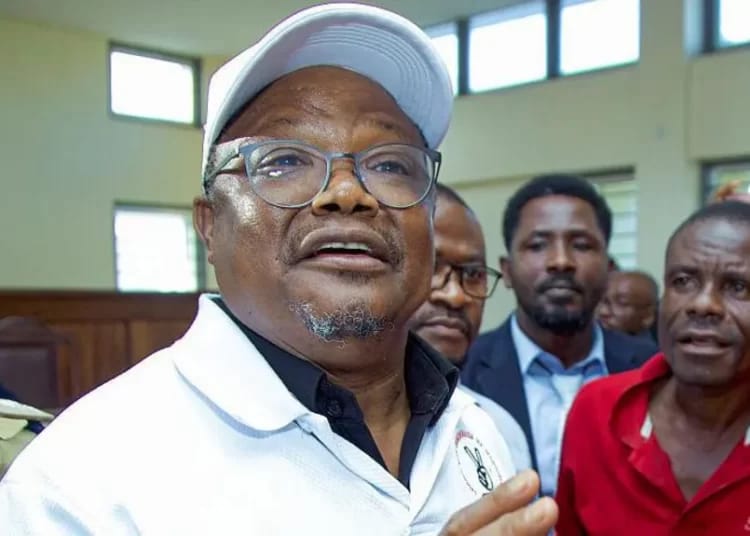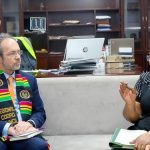Tundu Lissu, Tanzania’s opposition leader, has been charged with treason a day after his arrest following a rally in the southern part of the country. The charge is linked to his nationwide campaign calling for electoral reform, under the slogan “No Reforms, No Election.”

With national elections scheduled for October, Lissu is expected to challenge President Samia Suluhu Hassan. When Samia ascended to power in 2021 following the death of her predecessor, John Magufuli, she was lauded for reversing some of his more authoritarian policies. However, her administration has faced growing criticism for targeting opposition members with arrests and abductions.
Lissu has been vocal in his public appearances, stating that the upcoming election cannot be free and fair unless significant reforms are made. As leader of the Chadema party, he is pushing for changes to the composition of the electoral commission, arguing that it should not consist of individuals directly appointed by the president.
Authorities have accused him of inciting the public to reject the general election, but Lissu’s supporters maintain that his calls for reform are vital for a transparent process.
This is not the first time Lissu has faced legal challenges. In 2017, during Magufuli’s presidency, he survived an assassination attempt where he was shot 16 times. Afterward, he went into exile, briefly returning in 2020 to run against Magufuli, but left following election irregularities. Lissu returned again in 2023 after Samia’s reforms opened space for greater political freedom.
Earlier on Thursday, the police used tear gas to disperse Chadema supporters while blocking the party leaders from holding a press conference regarding Lissu’s arrest.
Some party supporters told the BBC that nothing would stop them from demanding electoral reforms ahead of the elections.
“We are surprised that the police are harassing us when our rallies are peaceful,” one supporter said.
“We know the ruling party, CCM, is behind all this. We will fight for changes before elections.”
Rights groups have condemned the use of force and accused the government of using state institutions to silence critics.
A lawyers’ association said the arrest of Lissu and the crackdown on his supporters was an abuse of power and showed a lack of political tolerance.
Lissu’s treason case has been adjourned until 24 April.
























































![[FREE FREE MONEY] Predict and Win a Guaranteed GH¢200 From Us EVERY WEEK](https://wordpress.ghanatalksradio.com/wp-content/uploads/2022/02/Predict-and-Win-Final-09-03-2021-218x150.jpg)
![[Predict & Win – 8th/Oct.] WIN A Guaranteed ¢200 From Us This Week](https://wordpress.ghanatalksradio.com/wp-content/uploads/2021/10/maxresdefault-16-218x150.jpg)
![[Predict & Win – 2nd] WIN A Guaranteed ¢200 From Us This Week](https://wordpress.ghanatalksradio.com/wp-content/uploads/2021/09/maxresdefault-50-218x150.jpg)
![[Predict & Win – 25th] WIN A Guaranteed ¢200 From Us This Week](https://wordpress.ghanatalksradio.com/wp-content/uploads/2021/09/maxresdefault-36-218x150.jpg)
![[Predict & Win – 18th] WIN A Guaranteed ¢200 From Us This Week](https://wordpress.ghanatalksradio.com/wp-content/uploads/2021/09/maxresdefault-23-218x150.jpg)








![[National cathedral] See full list of churches that have contributed since 2018](https://wordpress.ghanatalksradio.com/wp-content/uploads/2020/09/Ghana-National-Cathedral-GhanaTalksRadio-100x70.jpg)



